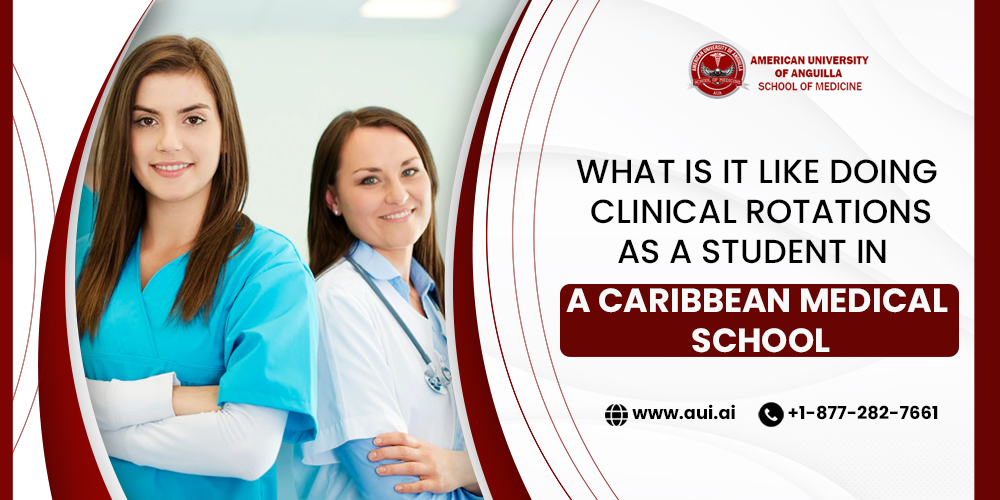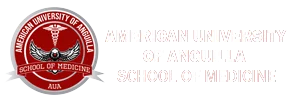

Blogs
What Is It Like Doing Clinical Rotations As A Student In A Caribbean Medical School?
If there’s one thing most medical students look forward to—the chapter of med school life they can't wait for—it is clinical rotations. These rotations are an essential part of their academic life, a practical approach to medicine. Up until 2-3 years of medical school, they're immersed in theory, with only practical work limited to any in-house laboratories and diagnostic centers. Clinical rotations are a whole new level of practical learning.
It is a world far away from classrooms and textbooks, yet very much related. Clinical rotations without theory, without basic concepts stowed away in mind, are not easy. Only if you've paid attention to your lessons in the class and the labs will you be able to start out clinical rotation sure-footed.
As a student in a Caribbean medical school, clinical rotations are far more exciting. You get to learn in a completely different environment, and you often start sooner. Although clinical science in a Caribbean medical school is mostly conducted in affiliate hospitals in the United States—such as that of the American University of Anguilla—these rotations may start as early as the beginning of the third year of medical school instead of the fourth.
Nearing your clinical rotation era as a student in a Caribbean medical school, excited yet unnerved by the idea of what it holds for you?
We’ve compiled a detailed guide, a look into the life of Caribbean medical university students as they start their clinical science program.
Clinical Rotations – A Brief Introduction
Basically, clinical rotations are hospital shifts that are mandatory for medical students. Each student gets that chance to carry out these shifts in each department of that hospital—i.e., emergency, clinics, radiology, surgery, etc. This way they get a direct experience of what each specialty is all about in real life.
As a student in a Caribbean medical school, where practical studies are emphasized often, you will not just be observant but also a participant during your clinical science journey.
The Most Important Chapter Of Your Medical School Life
Clinical rotations are more than just about an insight into the world of medicine as it is practiced in the real world. Every minute of these shifts is a learning moment that will be useful once you graduate from medical school and become a medical professional. Hence the reason the best Caribbean medical schools focus on early clinical learning.
In a classroom, you learn about identifying symptoms of a disease in a patient. However, when facing the same situation in real life, you'll find variables that no book prepared you for. The patient's history, their demeanor and take on their condition, the uniqueness of their condition, and more. This is an example of the particularities of practical medicine that you have a first-hand experience of during clinical shifts.
Here are some other ways clinical rotations build character—personality and professionally-wise—for a student in a Caribbean medical school:
1. The Insights You Gain Are Very, Very Valuable
During your clinical rotations at the hospital, you observe physicians and residents up close. You get to learn from seasoned professionals who have seen numerous different cases of just one kind of medical condition.
As a student in a Caribbean medical school, you know just how important a holistic approach is. Learn from each of your mentors by observing their individual strengths and takes on solving problems.
2. Observe & Participate In Medical Procedures
Many medical schools encourage students to have a hands-on clinical rotation experience (provided the hospital faculty also has the same policy). If you have the chance to participate in any procedure during clinical rotation, consider this a golden chance to enhance your skills for your future.
In addition to first-hand observation of diagnosis, treatment, and patient care, you also get access to patient data. In other words, you get to watch the complexities of medical conditions and complications up-close.
3. Secure Excellent Assessments & Recommendations
While you observe physicians and residents at work, they're observing you too. Therefore, these rotations are crucial for your medical residency. Not only are you learning you need to match a great residency, but you are also showing your seniors what you are capable of.
Your supervisors are the ones who will write recommendation letters for you, amongst other people. If you want to land the residency program of your dreams, start by focusing and performing well during your clinical science years.
4. Delve Into The Diversity Of Medical Specialties
As we covered above, clinical rotations enable a student in a Caribbean medical school to learn about each medical specialty. Consecutively, this is the time to figure out which specialty is for you.
The knowledge and real-world insight into medical specialties will give you better insight into the pros and cons of each. In other words, you make it easier for yourself to leverage meaningful opportunities when you choose a residency.
5. Emerge As A Learned Medical Professional
Lastly, by the time you're done with clinical rotations and your medical school journey, you're ready to jump into a medical career. The time you spend during these shifts determines your outlook and capability later in your career. A fruitful clinical rotation journey paves the way for a seamless residency!
Clinical Rotations At The American University of Anguilla
One of the leading reasons to join the American University of Anguilla is that our clinical science program is unmatched. We focus on practical learning as early as possible so that our students can leverage the unlimited benefits of real-world medical practice. Our clerkship and elective clinical training are conducted in some of the top hospitals.
If you are looking for a flourishing medical school experience—complete with an insightful clinical rotation journey at U.S. Affiliate hospitals. Then the American University of Anguilla is the place to be. Our MD and Premed Program Caribbean are open for admissions throughout the year on a rolling basis.
Apply online today and take the first step toward expansive medical career opportunities in the future!
